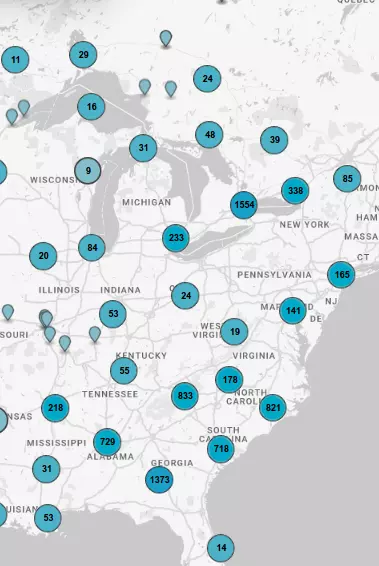Manila Village
At the turn of the 19th century, in nearby Barataria Bay, a group of Filipinos built raised structures on stilts above the water which became known as Manila Village. These shrimp drying platform...
Town of Jean Lafitte
Named for legendary privateer Jean Lafitte, who helped the United States win the Battle of New Orleans and used area bayous for his smuggling operations. Home to a thriving seafood...
Watson
First official post office established near this site, February 20, 1894. Named after first postmaster, George W. Watson, whose family owned land that is now the center of Watson.
Denham Springs
Mineral spring area near here owned by William Denham 1829-1855. Hotel near the springs built prior to the Civil War. Hill’s Springs post office renamed Denham Springs in 1898. The village...
Papa Lightfoot & The Natchez Blues
The rich legacy of blues, jazz, and gospel in Natchez has often been obscured by the tragic shadow of the notorious Rhythm Club fire that claimed some 200 lives here in 1940. Alexander “Papa...
Emerald Mound
Covering roughly eight acres, Emerald Mound is the second largest Mississippian mound north of Mexico. The main platform was constructed in three stages beginning ca. AD 1350....
Poblacion de Barataria (Barataria Settlement)
To guard New Orleans, Spain in 1779 settled 56 families from the Canary Islands on lands starting at Crown Point. Flooding by the Mississippi River forced most of the settlers to relocate in...
La Maison Française & The Honors House
The French House The French House--La Maison Française--is a Renaissance-style Normandy château built in 1935 as a center for intense study of French language, culture and literature. On April 15,...
LSU Living Christmas Tree
The living LSU Christmas Tree (circa 2014) symbolizes LSU's commitment to celebrating the holidays in a sustainable , environmentally friendly way. This tree was acquired through the generosity of...
L'Ancien Pont De Ser de Sarto
Jusqu'en 1913, les crues du Mississippi, tout proche, et des rivières Red (Rouge) et Atchafalaya obligeaient fréquemment hommes et bétail à fuir la zone dite du "Big Bend". En 1915, le Conseil de...
Sarto Old Iron Bridge
Prior to 1913, floodwaters from the nearby Mississippi, Atchafalaya, and Red Rivers frequently forced the evacuation of people, livestock and property in the Big Bend area. The Avoyelles Parish...
Fontainebleau Plantation Sugar Mill
These ruins are all that remain of Fountainebleau Plantation, once the summer home and plantation of Bernard de Marigny. Born in 1785 to a family closely tied to the earliest colonial efforts...
Salmon Lusk Wright 1852-1929
Developed at this site the world's best seed rice which revived that industry by insuring wider markets. His varieties that are used today for breeding purposes are Blue Rose, Louisiana...
Le Premier Puits de Pétrole
Le 21 septembre 1901 á Evangéline, á 5 milles au nord-est, le forage du puits no. 1 Jules Clement de la compagnie "Jennings Oil" fut terminé par W. Scott Heywood et ses associés. C'est ainsi...
Christ Church Cathedral (Episcopal)
This congregation was founded in 1805, the first Episcopal church established in the former Spanish colony after the Louisiana Purchase. In its first service was held in the Cabildo on November...
Gilmour – Parker House
Erected 1853For Thomas Corse Gilmour,English Cotton MerchantIsaac Thayer, Architect- Builder.Sold by Gilmour heirs in 1882To John M. Parker,whose son, John M. Parker, Jr.,lived here and later...
Solomon Northup “12 Years A Slave”
Located in the Faubourg Marigny, from the corner of Esplanade Ave. and Chartres St., is the former site of Theophilus Freeman's notorious slave pen (demolished after the Civil War) where...
Maisonette Creole
In 1832 this site was a part of Jefferson Parish and was known as the Livaudais Plantation. In the late 90’s it was occupied as an English Apothecary and owned by R.N. Girland. Restored by Fannie...
R.N. Girling’s “English Apothecary”
In this building Robert Nash Girling established his “English Apothecary” which he operated from the 1880s-1890s. An Englishman by birth, Girling studied pharmacy in England and at the Ecole...
Colonel Short’s Villa
Built in 1859 for Colonel Robert H. Short of Kentucky, commission merchant, Henry Howard, architect, Robert Huyghe, builder.In 1832 this property, which was part of the Lavaudais Plantation was...
